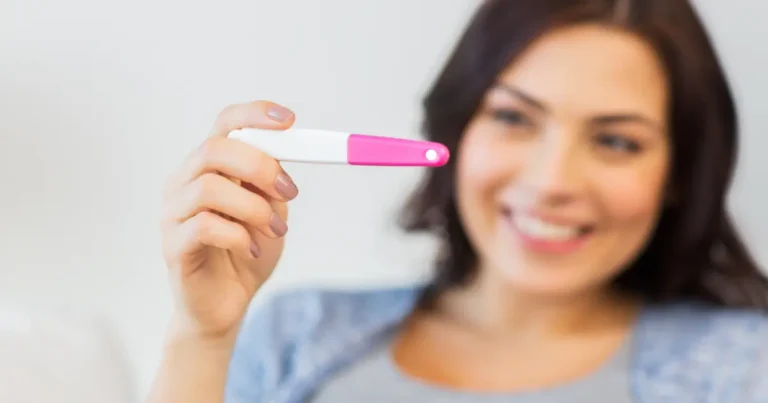Why Families Trust IVF Angels Goa
Where Are You in Your Journey?



For many women, motherhood doesn’t always follow a fixed timeline. Careers, lifestyle choices, and personal goals often push pregnancy into the mid-30s or later. But what does IVF after 35 really mean—and what can women expect from modern fertility care?
If you’re thinking about pregnancy after 35, you’ve probably come across mixed opinions—some say it’s too late, others share success stories. The truth lies in between: fertility naturally declines after the mid-30s, but modern medical science, especially IVF, offers women new hope.
After the age of 35, egg quantity and quality decrease, making natural conception more challenging. Health risks like high blood pressure, gestational diabetes, or miscarriages also increase. However, advances such as Preimplantation Genetic Testing (PGT), blastocyst transfers, and personalized stimulation protocols have dramatically improved outcomes for women in their mid-to-late 30s. Lifestyle choices—like maintaining a healthy weight, eating nutrient-rich foods, and managing stress—further enhance fertility and IVF success.
At IVF Angels Goa, led by IVF Specialist Dr. Milind Colvalcar, we specialise in helping women over 35 achieve pregnancy through evidence-based treatments, compassionate care, and cutting-edge laboratory technology. Whether you’re planning your first IVF cycle or exploring fertility preservation, this guide will help you understand your options and boost your chances of success.
Yes. A woman’s age is one of the strongest predictors of IVF outcomes. Fertility naturally declines with age due to two main reasons:
👉 According to ACOG, natural fertility declines significantly after age 32, with a sharper drop after 37.
| Age Group | Average IVF Success Rate (per cycle) | Source |
|---|---|---|
| Under 35 | 40–50% | CDC, ESHRE |
| 35–37 | 30–35% | CDC |
| 38–40 | 20–25% | ESHRE |
| 41–42 | 10–12% | ASRM |
| Over 42 | < 5% | ASRM |
👉 Research Says: According to ACOG, natural fertility declines significantly after age 32, with a sharper drop after 37.
Here’s what typical IVF success rates look like in Goa based on local clinic data:
| Age Group | Typical IVF Success Rate (per cycle) – Goa* |
|---|---|
| Under 35 | 55–60% |
| 35–37 | ~43% |
| 38–40 | ~37% |
| 41+ | ~28% |
*Indicative; actual success depends on health, fertility factors, and clinic protocols.
💡 While these are averages, many women 35+ do achieve pregnancy through IVF treatment—especially with advanced protocols and lifestyle optimization.
Although age plays a role, modern IVF techniques have significantly improved outcomes for women in their 30s and 40s. Key advances include:
In simple terms, while age reduces natural fertility, IVF gives women 35+ a scientific advantage.
Doctors often recommend not waiting too long after 35 to seek help. Consider IVF if:
📌 Tip: After 35, early evaluation saves time and improves your odds.
📌 Understand why some IVF attempts fail → Top Medical Reasons for Failed IVF in India
Here’s a combination of lifestyle strategies and medical interventions backed by research:
📌 Learn what’s different in a second IVF cycle → Second IVF Cycle in Goa – What Changes to Expect
Improving your IVF success after 35 requires a combination of lifestyle changes, diagnostic testing, and medical interventions. Here are 10 research-backed steps you can take:
| Focus Area | Key Action | Why It Helps |
|---|---|---|
| Weight & Fitness | Maintain BMI 19–27 | Improves ovulation & reduces IVF failure risk |
| Nutrition | Mediterranean-style diet | Supports egg quality & reduces inflammation |
| Lifestyle Habits | No smoking, alcohol, or excess caffeine | Prevents DNA damage & improves embryo quality |
| Mind–Body Health | Yoga, meditation, stress management | Balances hormones & supports implantation |
| Supplements | Folic acid, Vitamin D, CoQ10 | Improves egg health & pregnancy outcomes |
| Advanced Testing | Preimplantation Genetic Testing (PGT-A) | Ensures chromosomally healthy embryos |
| Timing & Planning | Consider egg/embryo freezing | Preserves fertility if delaying treatment |
| Backup Options | Explore donor eggs (esp. after 40) | Dramatically improves IVF success rates |
| Medical Checkups | Optimize thyroid, Vitamin D, hormones | Corrects underlying issues before IVF |
| Emotional Support | Counseling, support groups | Reduces stress & increases treatment resilience |
Note: This table is for quick reference only. Always consult your fertility specialist for personalized guidance.
If you are based in Goa or nearby states, advanced IVF care is available without needing to travel to metro cities. At IVF Angels Goa (Mapusa, North Goa), we offer:
Led by Dr. Milind Colvalcar (20+ years’ IVF experience), our clinic combines global best practices with ethical, transparent, and compassionate care.
📌 IVF Success Story: IVF Failure to Success Story in Goa
IVF success rates decline slightly after 35 due to reduced egg quality, but many women still conceive with support from advanced techniques like blastocyst culture and personalized protocols. You can also read a real IVF after 35 success story from IVF Angels Goa.
Maintaining a healthy BMI, following a Mediterranean-style diet, avoiding smoking and alcohol, managing stress, and taking fertility-supporting supplements (like folic acid, Vitamin D, and CoQ10) can significantly boost IVF outcomes.
IVF success rates vary by age. Here’s a typical range in Goa clinics:
| Age Group | Typical IVF Success Rate (per cycle) – Goa* |
|---|---|
| Under 35 | 55–60% |
| 35–37 | ~43% |
| 38–40 | ~37% |
| 41+ | ~28% |
*Indicative; actual success depends on individual health, fertility factors, and clinic protocols. Many women 35+ still achieve pregnancy with advanced IVF techniques and lifestyle optimization.
Yes. Preimplantation Genetic Testing (PGT-A) helps identify chromosomally healthy embryos, improving IVF success rates and reducing miscarriage risks for women over 35.
Yes. Fertility preservation through egg freezing or embryo freezing remains an option. While outcomes are typically higher before 35, many women still achieve positive results after this age.
Donor eggs are usually recommended for women with very low ovarian reserve or above 40. Using donor eggs greatly improves IVF success chances and can be the most effective path to pregnancy.